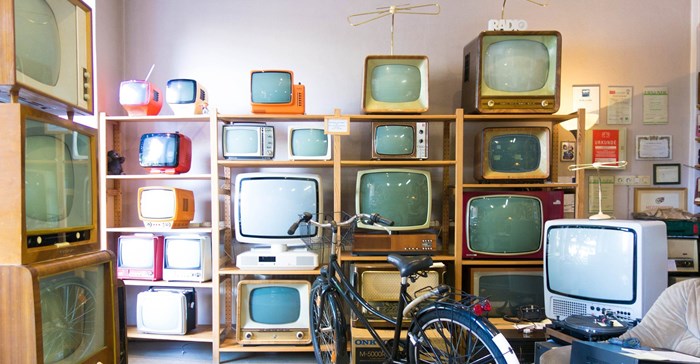#AfricaMonth: African content takes centre stage
For #AfricaMonth we speak to Leslie Adams, sales director at streaming experts Reach Africa about the growing significance of African content.
Recently Netflix announced it will invest R900m in South African-produced content, while MultiChoice plans to increase local content production by 32% YoY, aiming for 50% local content by 2024.

What factors do you believe are driving the growing appetite for African content in the streaming industry?
I don't believe there is anything new about the appetite for African content but more a long overdue acknowledgment of the importance and significance of African content.
Both Netflix and Viu have recently announced significant investments in South African-produced content. What do you think is motivating these global players to invest in African content specifically?
Viu has really led the charge to bring South African content to the VOD space, while international players such as Netflix recognise the positive business impact it can play in growing its African viewer base. The model of simply importing content is not working as well as creating local African content for an African audience.
How do you perceive the impact of these investments by Netflix and Viu on the South African and African entertainment industry? What opportunities or challenges do they present?
It is hugely positive, especially for local content creators, film producers, and African talent as a whole. Much needed funding is finally flowing freely into this space, allowing Africans to tell African stories and distributor streaming platforms exposing both local and international audiences to the rich and diverse stories Africans have to tell.
You mention that local content will be the key to streaming success in the future. Can you elaborate on why you believe this is the case?
When we look at the various streaming services available in the African market, the key differentiator in audience size, time spent and audience money invested, all comes down to who has the best African library of content. When you look at the most watched broadcast TV shows in South Africa, 19 of the top 20 shows are all local South African shows. This clearly demonstrates that local African content attracts an African audience.
In terms of viewership and audience engagement, what advantages does local content have over international content?
Content as an investment, globally remains a very high risk business, with massive investment required upfront without any guarantee of success.
This, and many other factors, has led to an endless funnel of remakes, reboots, sequels and extended seasons of both series and movies.
When we look at the long standing strength of the South African soapies, it's easy to see what South African audiences engage with. The prime time soapie audience in South Africa commands a huge audience with programmes like Uzalo reaching over eight million people per episode. The South African prime time audience is highly engaged, loyal, and outperforms the closest international piece of content at a rate of almost 10 to 1.
MultiChoice, another major player in the streaming market, has expressed its intention to increase local content production significantly. How do you think this will affect the competitive landscape within the industry?
MutliChoice has long been the leader in all things content in South Africa and on the African continent at large for over 20 years now and the commitment to local content is really a reflection of how well African content performs on its platform.
Nine of the 10 top-performing shows on DStv are all locally produced Mzanzi Magic shows, even outperforming its coveted sports channels. If streaming is the next frontier, African content is the key that unlocks its success.
As streaming platforms continue to prioritise local content, how do you envision the future of the South African entertainment industry? What opportunities do you see for local talent and content creators?
The industry will experience exponential growth fueled by more and more global South African hits. Leading to more opportunities both in the local and international markets, for every part of the industry.
Looking ahead to 2024, when MultiChoice aims to achieve 50% local content, what impact do you think this goal will have on viewership patterns and audience preferences in South Africa?
The race to have the best African content library is on, and every international player looking to enter the African market will need to emulate this formula just to buy a ticket to the race let alone compete. Audience behaviours have already shifted and will continue to do so as more and more consumers move away from appointment viewing to on-demand.
In the US, streaming has already overtaken TV in terms of time spent watching, although Africa may be some way off that mark due to our own challenges, that inevitability is only delayed and a commitment to African content for the African market is really a way of ensuring your competitiveness now into the future.
How can streaming providers strike a balance between offering local content and ensuring a diverse range of international content to cater to the preferences of a diverse audience?
Streaming providers and all content providers have the challenge of being everything to everyone, and this may lead to various streaming providers looking to either consolidate, bundle or fold entirely as consumer behaviour evolves.
This inevitability means that we are still going to see a lot of innovation in this space.
Are there any lessons that streaming platforms can learn from the success of uBettina Wethu, the hit show on Viu? How can they replicate or build upon that success with other local productions?
The key lesson from the success of uBettina Wethu airing on both traditional TV (SABC) and streaming (Viu) is that the need to platform stack is a necessity for both content owners and brands looking to reach that audience in a world where the audience now consumes content on multiple devices.









































